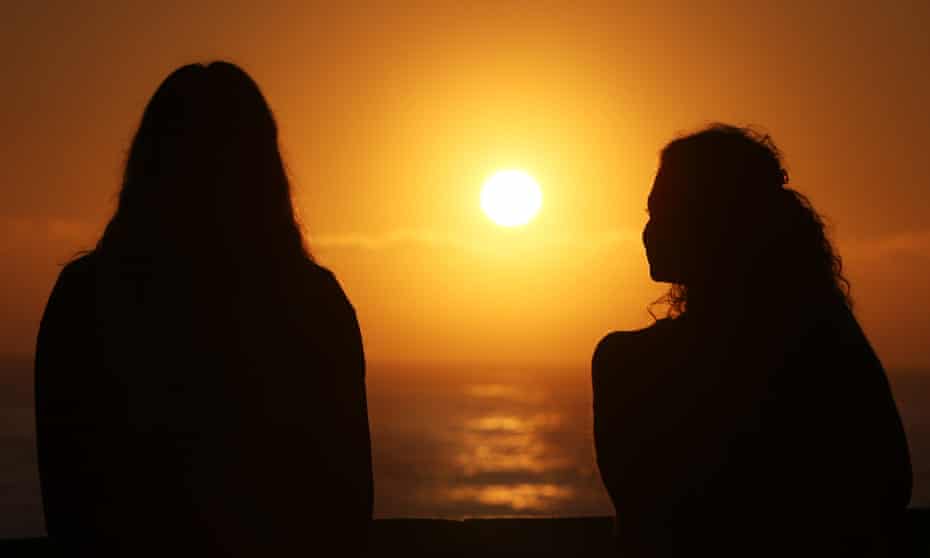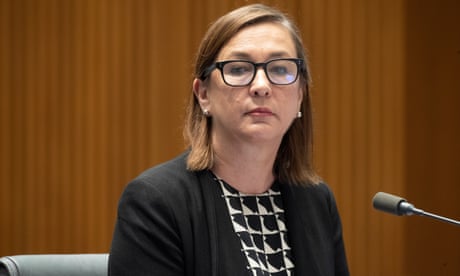Extract from The Guardian
The story of the pandemic is one of trying to understand a future we cannot plan for while still clinging to hope.

This time last year Sydney’s northern beaches were locked down. Then there was the brief and patchy reprieve until Delta breached our hermit nation’s defences in June, and we endured the grinding lockdowns in New South Wales and Victoria through winter and spring, the hospitalisations and deaths, waiting for the government to procure sufficient vaccines for us to outpace the virus. We enjoyed another hesitant return to something closer to normal, a few reunions, some restaurant meals, a few weeks back at work, and now Omicron, and that sense of rising uncertainty all over again.
Above everything this is a story of fatigue, of a soul-deep weariness with separations and sadness and Zoom calls and cancelled plans and personal, daily, risk assessments, of fear and confusion. It is a story of trying to understand the future when we cannot plan for it, of trying to find satisfaction and meaning in the imperfect present, of moderating expectations while clinging to hope.
We seem to have learned some lessons; the rollout of booster shots for aged care residents and staff is better than previous deadly disasters, although it’s more of a scramble in rural areas and Indigenous communities where vaccination rates were already lagging, and our analysis shows the slow initial rollout means it could take until well into next year to hit an 80% booster vaccination rate. We are ranking almost last out of 70 countries.
While governments, even those ideologically disinclined, have more or less followed scientific and medical advice through the pandemic thus far, their decision making now seems infused with the public’s general exhaustion with rules and restrictions, even though many experts are urging caution, at least until they understand this new variant better.
For the federal government, Omicron’s uncertainties are ill-timed. Scott Morrison wants to make plans, pandemic notwithstanding, because the federal election must be held by May. He is already rehearsing his re-election pitch, in which his own embrace of unprecedented restrictions and record government spending are inscribed in the history books as heroic, crisis-necessitated aberrations, while we all watch Covid-19 receding in the “rearview mirror”. That’s a tough sell, even tougher if cases are still climbing, and lives and businesses are still interrupted.
The government seems to have its eyes on the polls rather than public health
“The reach of government in this pandemic is not some new norm … It has a use-by date,” he explained to the audience at the Sydney Institute’s annual dinner, warning them against “the left of politics” who want to “build back better”, because that was code for maintaining a bigger role for government.
I’d argue that Covid has exposed the weaknesses in our society like a fluorescent marker dye, highlighting the underfunded hospitals and public schools, the inadequate Indigenous and rural medical services, the transformative impact of a liveable rate of unemployment payment, before it was snatched away again. I think building back better means fixing those inequities to benefit us all, and it cannot be conflated with a generalised weariness with government interventions. I guess that’s a debate for the election campaign.
The desire to see the pandemic fading into history also seems to be accelerating a return to politics as it was played before the jolt of an existential crisis. We all saw the speed with which dangerous falsehoods can spread but the government seems to have its eyes on the polls rather than public health, refusing to rein in its own members disseminating misinformation on their taxpayer-funded websites. We saw how essential trust in institutions was when we faced down a crisis, but the prime minister is openly ridiculing the NSW state corruption commission in an unsuccessful attempt to woo a candidate for his party’s political gain.
And while the Morrison government took a wholly inadequate target to the Glasgow climate summit, with no new policies to achieve it, Labor’s more ambitious policy was met with almost universal acclaim from industry and business groups. With climate-minded independents focusing the minds of inner-city Liberals, it is possible we are seeing the final sputtering years of Australia’s mind-numblingly stupid “climate wars”?

For Guardian Australia, this year was one of expansion, into new ways of delivering our journalism to different audiences, via podcasting, video, Instagram and TikTok. The pandemic has also underlined the importance of state governments and next year we will be establishing state bureaus in Victoria, NSW and Queensland; a pilot project we hope will soon extend to other states.
And so we all face 2022 much as we did 2021, with hope and determination but without certainty or the luxury of definite plans.
Researchers say one of the best ways to combat temporal disintegration – an extreme form of losing time perception in the pandemic – is to be careful about the news you consume. My Guardian Australia team and I will continue to work to bring you the most timely, factual, contextualised news and analysis, whatever 2022 might bring. Thank you for reading, for your feedback and for your support.
No comments:
Post a Comment